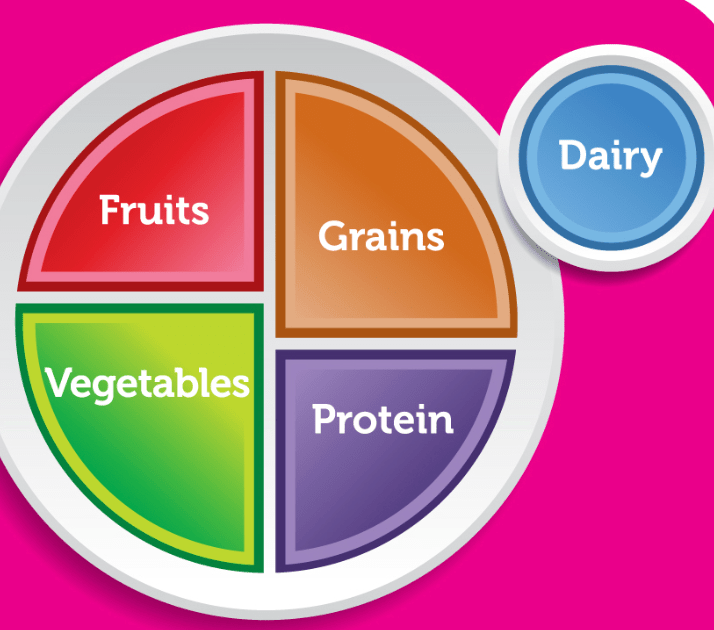📱📺
📱📺
🎲⚽
📚
🗣️👂
🥦🍊
True or False: Children should never use screens.
False.
Limited, age-appropriate screen time can be okay.
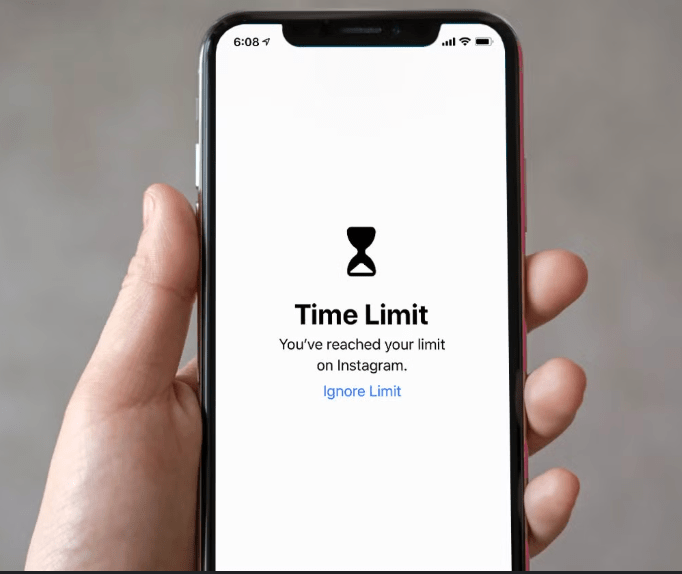
True or False: Playing outside can help with both physical and mental health.
TRUE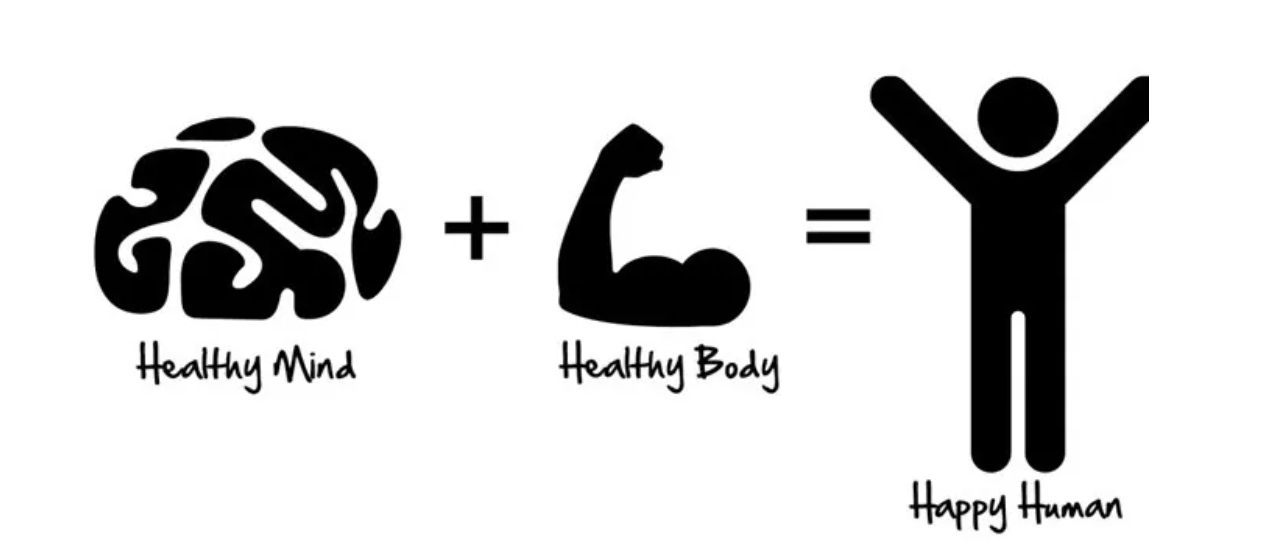
Reading at home for just 20 minutes a day exposes kids to about how many new words in a year?
1) About 18,000
2) About 180,000
3) About 1.8 million
3) About 1.8 million.
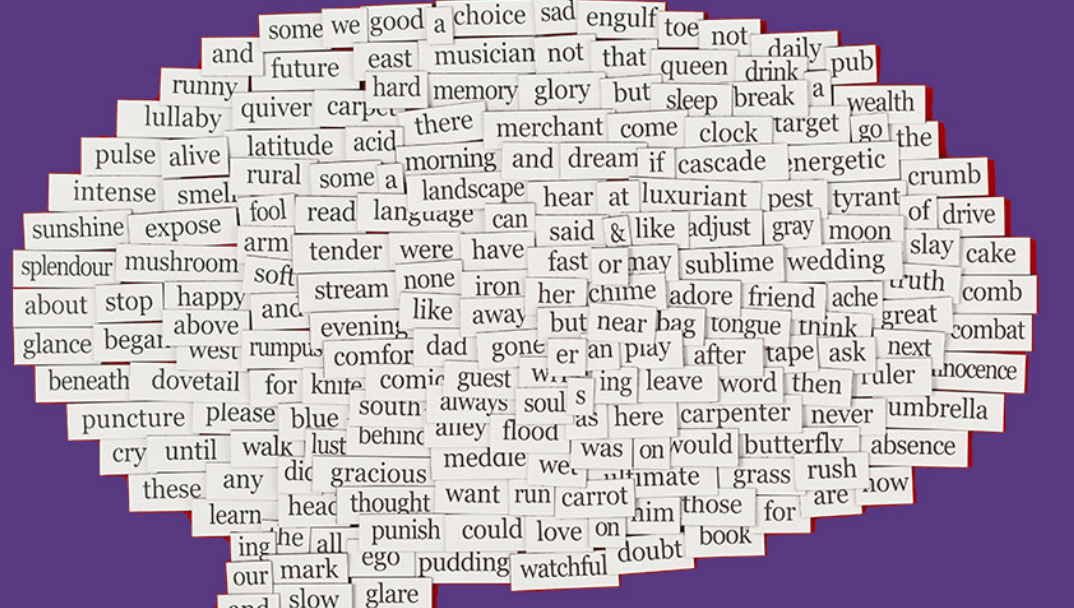
True or False: Asking kids questions with more than “yes/no” answers helps grow their thinking skills.
True
How many hours of sleep do elementary students usually need each night?
9–12 hours.
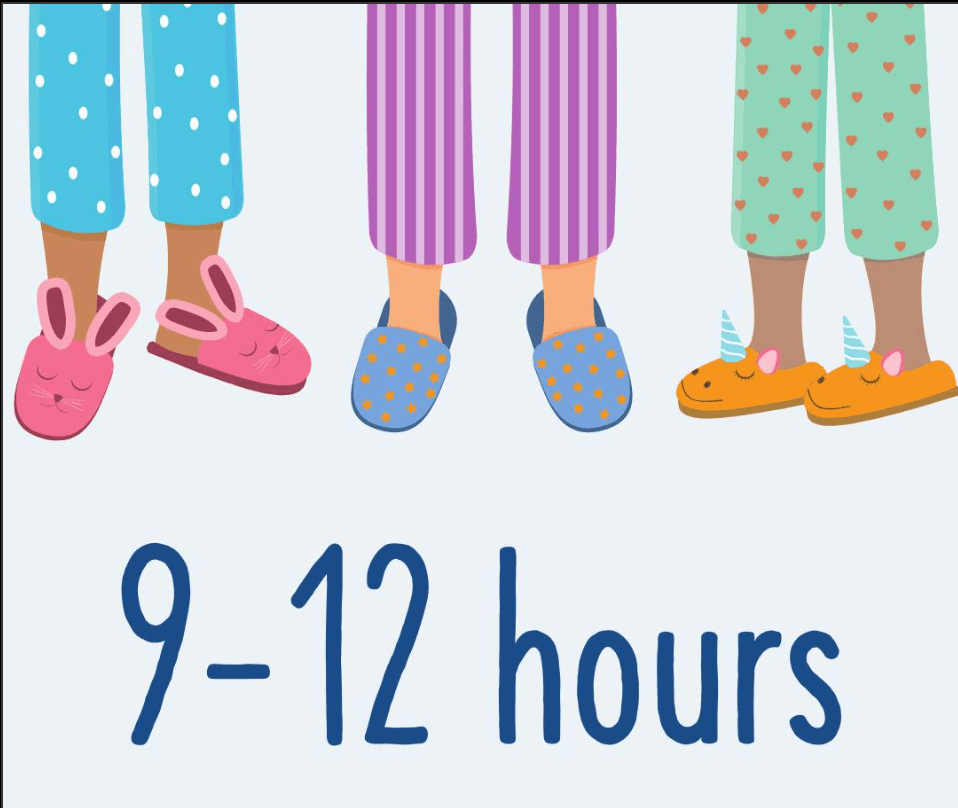
True or False: Breakfast should include foods from at least three food groups.
True.
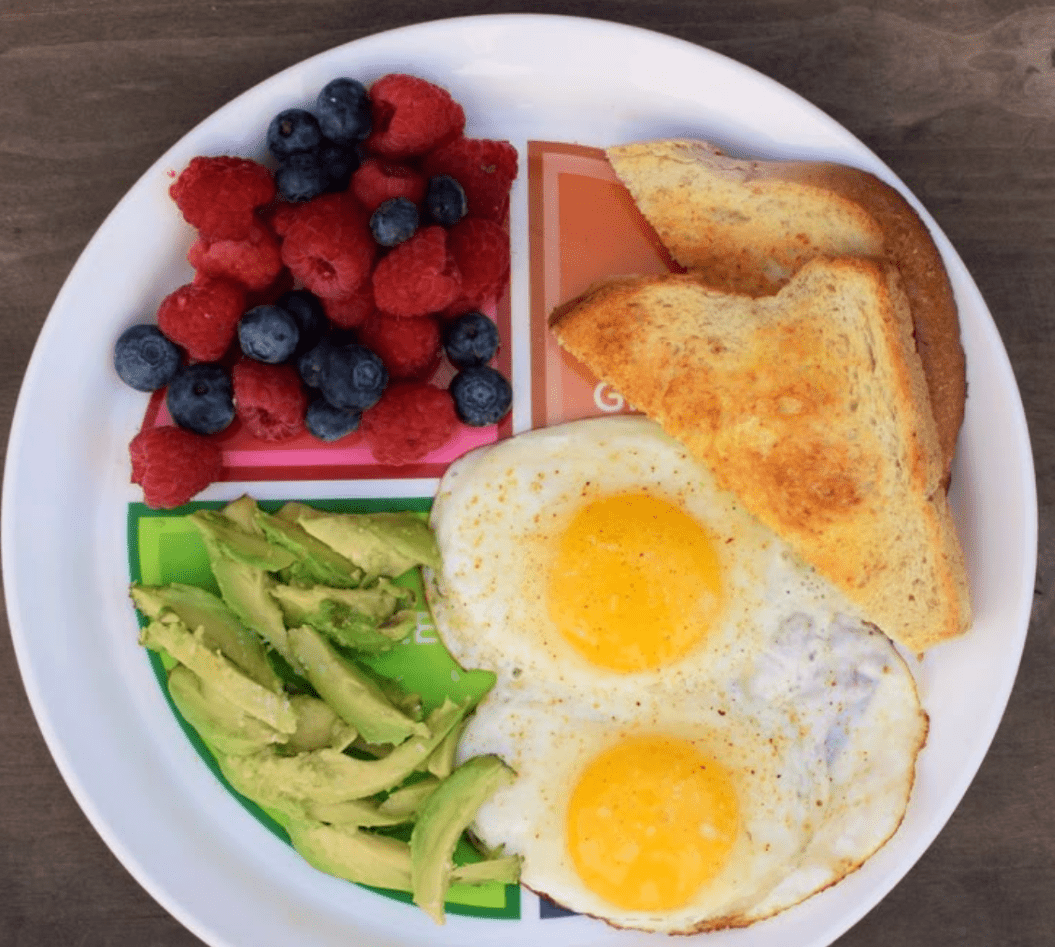
How many hours of TV should kids under age 2 watch?
Zero. They need play and interaction instead.
How many minutes of physical activity should kids get every day?
At least 60 minutes every day!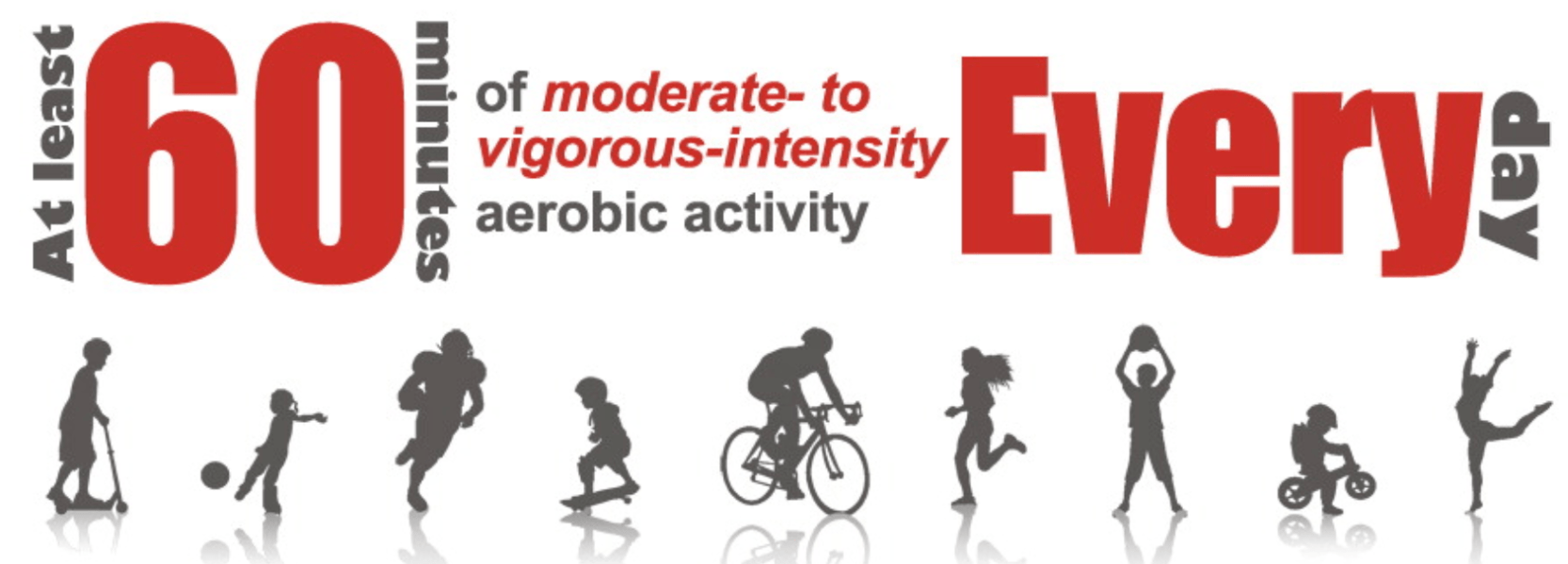
True or False: Parents can read to kids in English or another language. Both are valuable.
True—it helps either way.

Name 2 everyday activities where you can talk with your child to build language.
Cooking, shopping, driving, cleaning, etc.
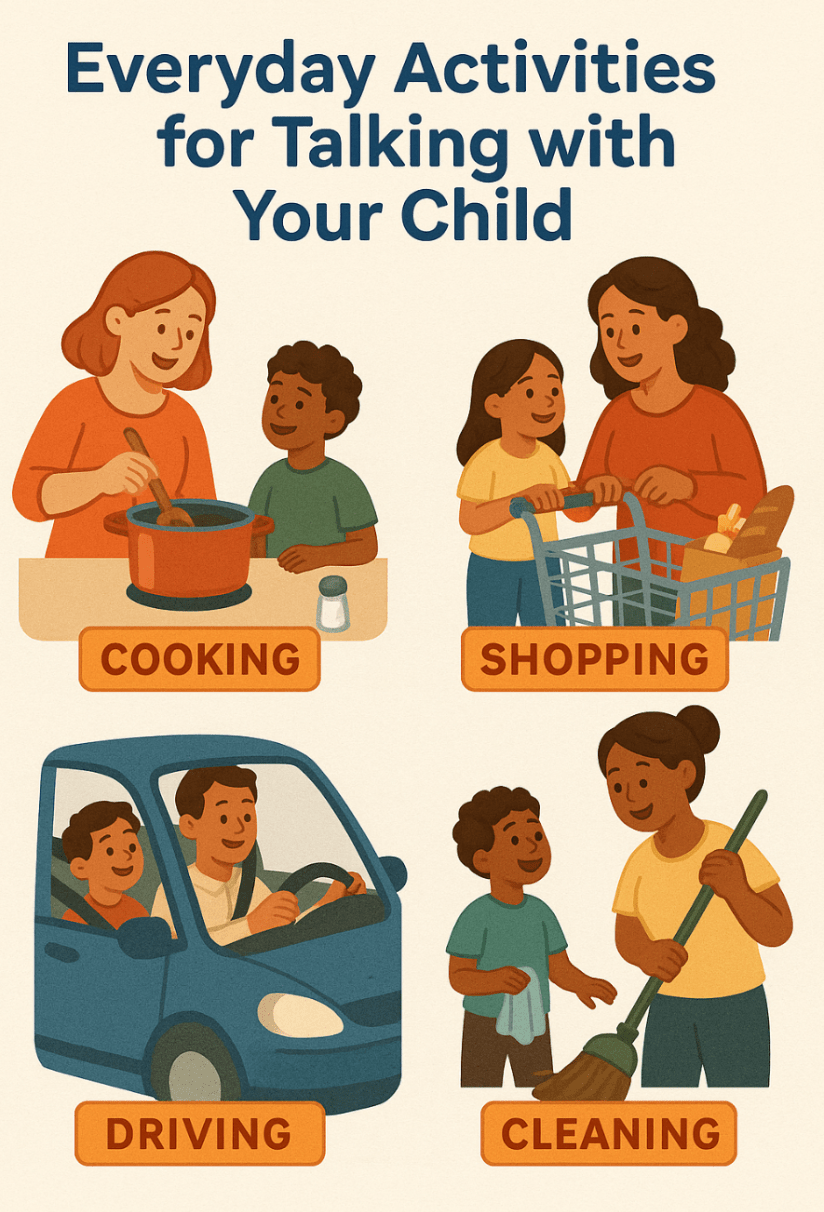
A healthy breakfast helps students with what two things at school?
Focus and Energy.

Why is drinking water a better choice than fruit juice at lunch?
A) Water has fewer vitamins
B) Water keeps kids hydrated without extra sugar
C) Juice is always unsafe
D) Juice makes kids sleepy in class
B) Water keeps kids hydrated without extra sugar ✅

Too much screen time at night affects _______ quality.
sleep
Kids don’t need expensive toys. Name 3 things at home that can be a toy.
boxes, pillows, balls, etc.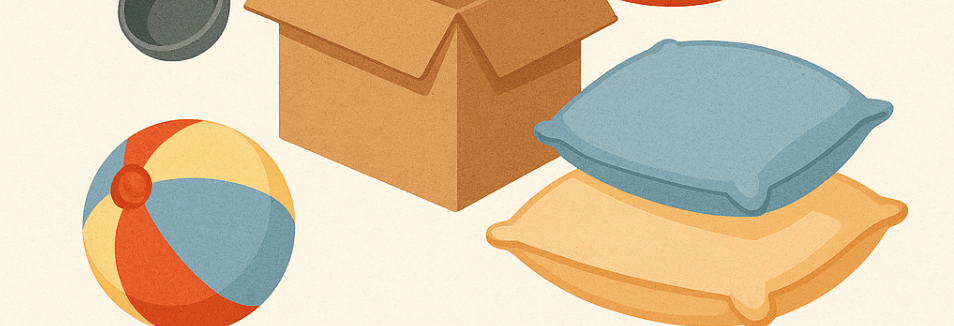
True or False: Talking about the story after reading helps children understand it better.
True.
When parents ask children to explain their thinking, it mostly helps with:
A) Remembering exact facts
B) Building problem-solving and language skills
C) Learning faster math tricks
D) Finishing homework more quickly
B) Building problem-solving and language skills
![]()
Which of these habits has the biggest impact on a child’s focus and learning in school?
A) Eating a large dinner the night before
B) Having a set bedtime routine
C) Watching educational TV before school
D) Talking about grades every day
B) Having a set bedtime routine ✅
Kids should eat foods from how many food groups each day?
Five (fruits, vegetables, grains, protein, dairy).
